People with social anxiety disorder, sometimes called social phobia, feel intense fear or anxiety in social situations. They might worry about talking to others, meeting new people, or being judged publicly. While they might understand these fears are out of proportion, they struggle to overcome them. This differs from shyness, which can make social interactions harder but doesn’t disrupt everyday life as much. Social anxiety is persistent and can significantly impact daily activities, affecting millions of adults.
Symptoms of social anxiety disorder
While anyone can feel anxious occasionally, people with social anxiety experience intense fear and physical symptoms like blushing, sweating, and rapid heart rate during social interactions. This fear of judgment or embarrassment can be overwhelming and lead them to avoid situations like asking questions, going to job interviews, or even eating in public.
Social anxiety symptoms are different from shyness. Shyness might make you uncomfortable in social situations, but it doesn’t disrupt your daily life as much.
If you’re unsure if you have social anxiety, it’s essential to talk to a doctor or mental health professional. They can help you understand your symptoms and develop a plan to manage your anxiety and improve your quality of life.
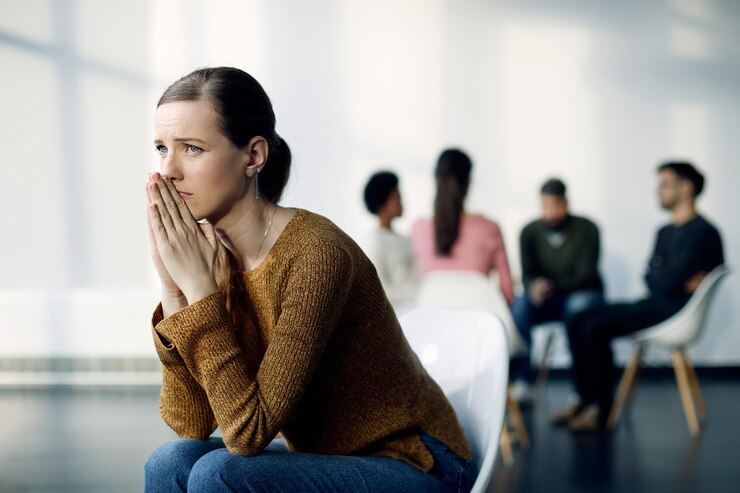
What causes social anxiety disorder?
Scientists aren’t exactly sure what causes social anxiety, but it likely involves a combination of things like brain chemistry, genes, and life experiences. Certain brain chemicals responsible for mood regulation might be imbalanced, and negative experiences like abuse, bullying, or overprotective parents could also play a role. While anxiety disorders can run in families, it’s unclear if this is due to genes or a shared environment.
As for other types of phobias besides social phobias, there are many! These can range from common fears like spiders and heights to more specific ones like fear of public speaking or enclosed spaces.

If you are looking for insomnia solutions then this might help you;
Treatment of social anxiety disorder
Counselling therapy
- Counselling: Talking one-on-one or in groups with a therapist can help you understand your anxieties and develop new coping mechanisms.
- CBT (Cognitive Behavioral Therapy): This therapy helps you identify and change negative thoughts and behaviours related to social situations.
- ACT (Acceptance and Commitment Therapy): This approach teaches you to accept your anxieties and focus on living a fulfilling life despite them.
- Group therapy: Joining a support group with others going through similar experiences can help you feel less alone and learn from each other.
- Exposure therapy involves gradually exposing yourself to feared social situations in a safe and controlled environment.
Online group therapy is a form of group therapy conducted through online platforms like video conferencing. It allows you to connect with others and receive professional guidance from a therapist, all from the comfort and privacy of your own home.
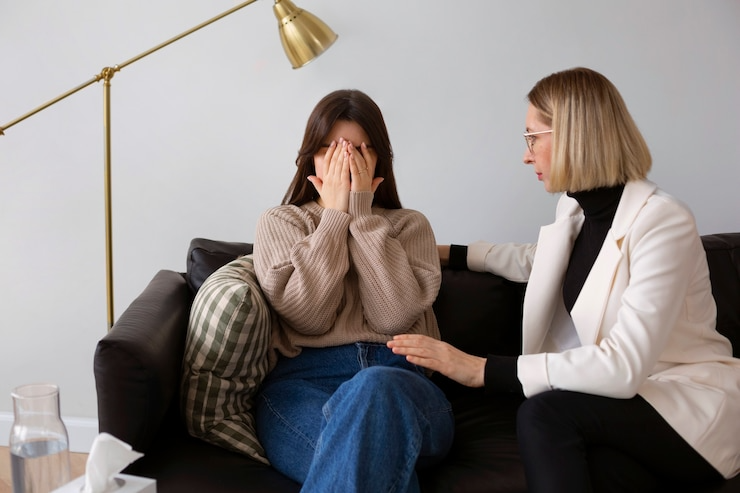
Medication
Medications can be helpful alongside therapy in managing social anxiety. Some commonly used medications include SSRIs and SNRIs, which affect brain chemicals involved in mood regulation. While these medications can take some time to show full effect, they can significantly improve your daily functioning.
Additionally, propranolol is a short-term option you can take as needed in situations that trigger your anxiety. It’s important to note that any medications come with potential side effects, and your doctor will carefully assess your individual needs and risks before recommending a specific option. They will also discuss each treatment option’s benefits and potential drawbacks to help you make the best choice for your situation.
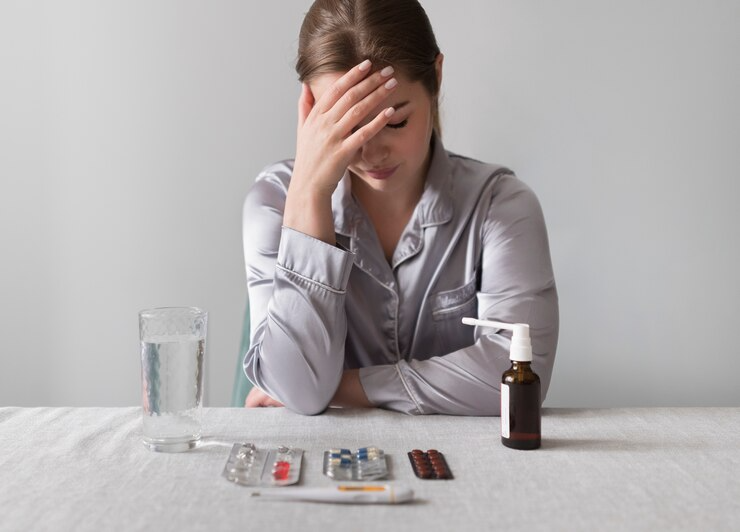
Home remedies
In addition to seeking professional help, several self-care strategies can support your social anxiety journey:
- Relaxation techniques: Practices like deep breathing exercises and meditation can help manage stress and anxiety in the moment.
- Physical activity: Regular exercise, including yoga and tai chi, can improve overall well-being and reduce anxiety symptoms.
- Healthy habits: Prioritize good sleep and a balanced diet, and avoid stimulants like caffeine, as these can worsen anxiety.
- Knowledge and support: Learning about anxiety and its effects can empower you to manage it. Seek support from a trusted therapist, friend, or family member. Be aware of your symptoms and know when to seek professional help.

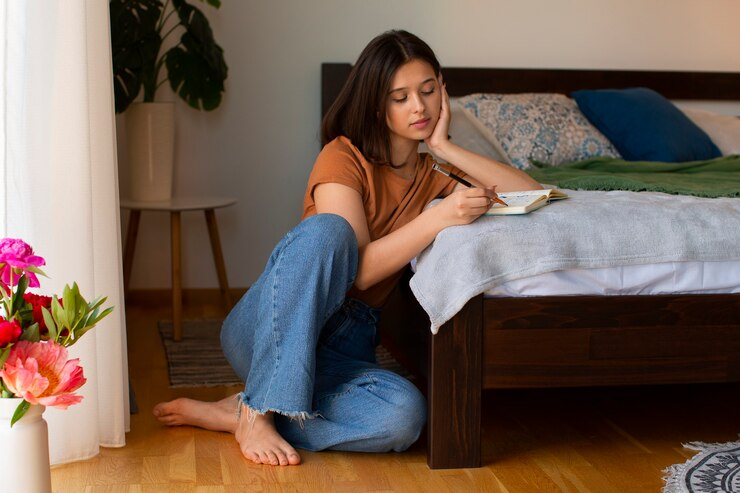
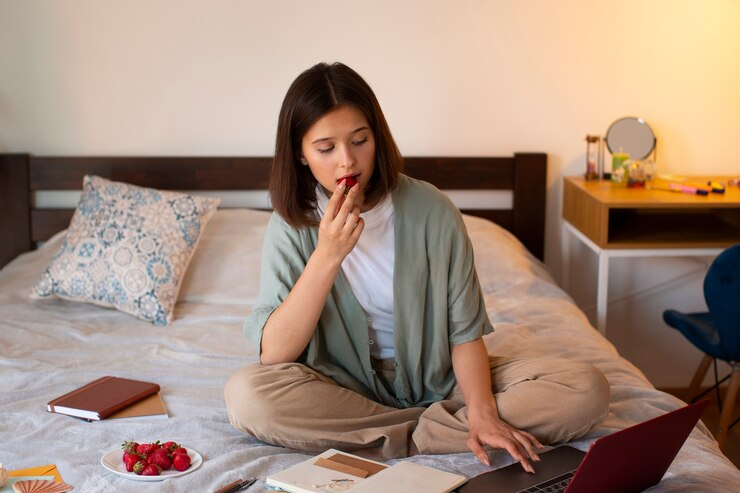
Outlook and complications
Many people suffering from social anxiety, often for over a decade, hesitate to seek help. This might be due to not recognizing it as a treatable mental health condition. However, leaving it untreated can significantly impact various aspects of life, including work, relationships, and overall well-being. Additionally, social anxiety often co-occurs with other mental health conditions like depression and substance abuse. Fortunately, effective treatments like therapy, lifestyle changes, and medication can help individuals manage social anxiety and lead fulfilling lives.

Summary
People with social anxiety experience intense fear and anxiety in social settings. This fear of being judged or embarrassing themselves can be so overwhelming that they avoid socializing altogether, impacting their daily lives and ability to participate in school, work, or even shopping. While their fears may seem magnified, effective treatments such as medication, therapy, and lifestyle changes can significantly improve their quality of life and help them manage these anxieties.
